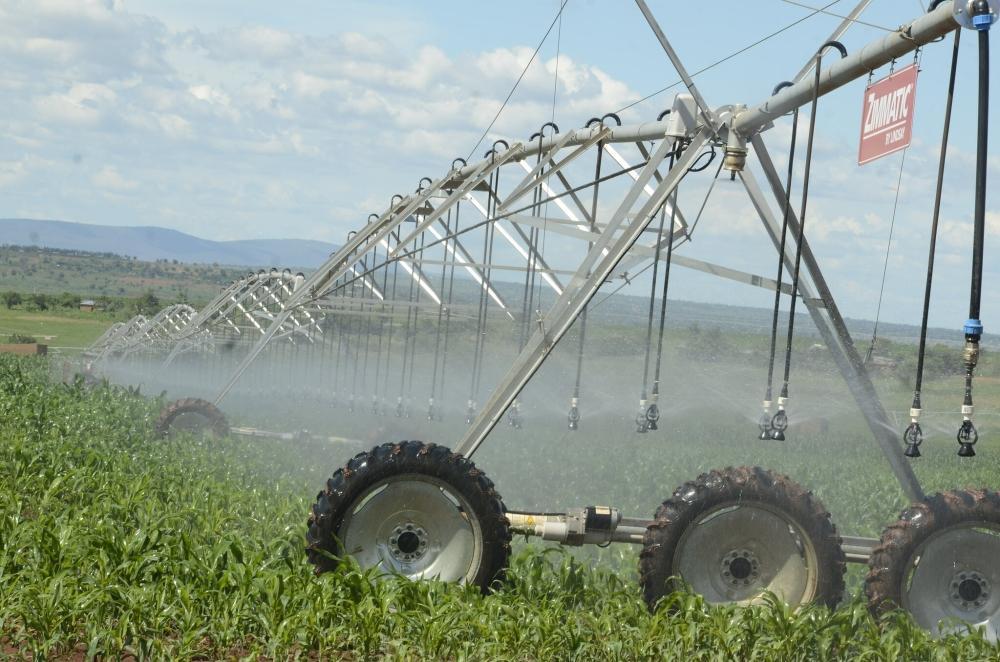Africa-Press – Rwanda. Public satisfaction with agricultural services in Rwanda reached 61.5 per cent during the 2023/2024 fiscal year, according to Rwanda Governance Board (RGB)
While this shows progress compared to previous years, members of the Parliamentary Committee on Governance and Gender Affairs are calling for stronger action to modernize agriculture and ensure farmers receive seeds and fertilizers on time.
The concerns were raised on Monday, April 28, during the presentation of the committee’s analysis of the RGB’s 2023/2024 performance report and the 2024/2025 action plan.
“Services evaluated in the national survey generally scored below 60%, with timely access to seeds at 59% and the use of mechanized farming equipment at an exceptionally low 4.1%,” MP Anastase Nabahire, the committee chairperson, said.
District-level data revealed that satisfaction in 12 out of 30 districts remains below 60 per cent, with Musanze and Rubavu districts falling below 50 per cent.
However, MP Nabahire also highlighted that citizens’ satisfaction with agricultural services had improved by 12.1 per cent over the last seven years, moving from 49.4 per cent.
“We held discussions between the committee, RGB, the Ministry of Agriculture and Animal Resources, and district officials who pointed to a variety of contributing factors including the impacts of climate change, the spread of diseases, a lack of sufficient agro-processing industries, inadequate quality control of produce, poor rural infrastructure, and insufficient agricultural awareness campaigns,” he stated.
MP Jeannette Uwababyeyi stressed the central role of agriculture in Rwanda’s development, saying, “Agriculture is one of the key pillars supporting the country’s development, especially when we ensure timely access to seeds and fertilizers.
Based on the strategies in place, Uwababyeyi said that there should be effective solutions to the existing challenges, ensuring timely interventions not only for large-scale farmers but also for smallholder farmers.
Uwababyeyi added that when seeds and fertilizers arrive late, agricultural activities are delayed, affecting the yields.
“If agriculture is destabilized, the agro-processing industries that depend on agricultural products will also face challenges and will not operate effectively,” she said.
Nabahire further explained that according to the report, 85 per cent of farmers rely on local agricultural advisors for information, 39% depend on the media, 38.5% on agronomists, and 28% on Social Economic Development Officers (SEDOs). Yet traditional mindsets about farming still persist, with many farmers unaware of the changing dynamics of land scarcity, climate variability, and the proper use of fertilizers.
MP Damien Nyabyenda pointed out the progress made in satisfaction rates but warned that delays in seed distribution could threaten productivity.
“Citizen satisfaction with agricultural services has risen over the past seven years, from 49.4% in 2018 to 61.5% in 2024. However, the availability of seeds on time remains at 59%, and the use of agricultural machinery is extremely low at 4%.
Factors such as climate change, crop diseases, and the insufficient number of agro-processing industries affect performance. If a farmer cannot access seeds on time, productivity is compromised.
Nyabyenda said the Ministry of Agriculture and districts should develop strong measures to ensure the timely provision of seeds, leaving climate change as the primary challenge to tackle,” he said.
MP Anastase Nabahire noted that most Rwandan farmers operate on small plots where heavy machinery is not practical.
“Most citizens do not require farming machinery because they cultivate small plots of land, The ministry has already completed a mapping exercise identifying land holdings greater than three hectares. Farmers with land exceeding three hectares will be prioritized for the use of agricultural machinery, seed multiplication, and the distribution of seeds and fertilizers,” he added.
Given that planting seasons vary across different regions, Nabahire emphasized the need for flexible distribution systems tailored to local conditions. He called for closer engagement between the ministry staff, farmers, and distribution networks, underscoring that consistent follow-up will be essential to ensure that seeds and fertilizers reach farmers efficiently and on time.
For More News And Analysis About Rwanda Follow Africa-Press






